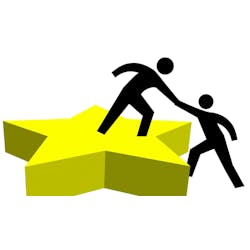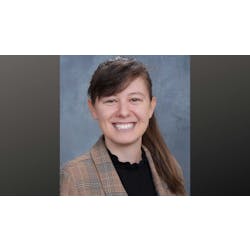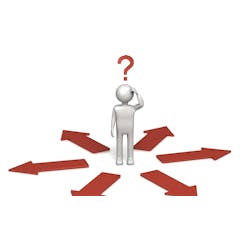Networking: Developing contacts or exchanging ideas or information with others in an informal network to further one’s career.
Networking is defined in Webster’s Dictionary as developing contacts or exchanging ideas or information with others in an informal network to further one’s career. Do you consider your role as a dental hygienist a “career” or just a nine-to-five “job”? If dental hygiene is just a job for you, ask yourself why. Are you in it just for the money or to enhance yourself and others? If you are in dental hygiene to enhance yourself and others, then networking is something you should pursue. However, many hygienists are not familiar or comfortable with networking. What exactly is it, and how does one become involved?
First, before networking, you must decide your goals such as where you want to be in six months, one year, five years, or even 10 years. Knowing one’s goals can provide direction in life. They can also include a mission statement, which is a formal statement of goals. Setting goals and objectives is important since knowing where you want to be in the future determines where your networks will be developed.
After goals, determining who can help you accomplish them is the next step. Business professionals call these individuals “relevant people.” Relevant people help you broaden your perspectives and find the resources to accomplish your goals. They share your professional interests and goals.
The best place to find relevant people is within a professional organization for hygienists - the American Dental Hygienists’ Association. Members of ADHA have a ready-made network. By becoming members and attending meetings, hygienists can incorporate a shared vision of goals and objectives. As a clinical hygienist, one often does not have interaction within a practice with other hygienists. Within ADHA and its constituents, members can network with a variety of hygienists, learn about the profession, and enhance their knowledge base. In fact, I would not be writing, presenting CE programs, or in my current teaching position if it were not for the contacts I made through ADHA. You may not aspire to speak to large groups, but you educate patients daily. Networking with people who experience the same highs and lows as you goes a long way to enhance your professional development.
In addition to networking within ADHA, one can find mentors, individuals who serve as wise advisors, loyal friends, and coaches. The mentor relationship can be formal or informal, lifelong or short-term. However, mentor and student need to set realistic goals and boundaries for the relationship, have mutual respect for each other so there is openness to the other’s ideas and suggestions, and have an evaluation process. I have experienced the benefit of a wonderful group of mentors, as well as the satisfaction of being a mentor. Mentors support the student’s growth and help him or her develop ways to succeed, not only in professional life, but in the personal arena as well.
How do you go about finding a network or mentor? Think about your friends ... you probably share the same interests and beliefs. That is what a network is - a large group of friends who help you along the way and receive your help in return. But how do you create a dental hygiene network if you are a soft-spoken person? One way is to have people you meet talk about themselves. We all love to talk about ourselves. When you meet someone at a CE meeting, ask the person his/her name and where he/she works. This will lead to other topics. However, if the person doesn’t want to talk, don’t be discouraged. Focus on someone else. If you have a business card, exchange it with your newfound friend.
I firmly believe that hygienists need their own business cards in clinical practice. On a day-to-day basis, business cards can act as appointment cards for the patient’s next visit. Cards give patients a “real” name and face, not just the “girl who cleans my teeth.” Business cards also help those who want to contact you or your dental practice. If your employer doesn’t offer business cards for the staff, they are relatively easy and inexpensive to make on your home computer. Then you will have a ready handout for people you meet at programs to begin a network of people with similar interests. From there you can find those “relevant people.”
If you feel uncomfortable doing this at a CE program, expand what you are already good at - the practice of dental hygiene. If you are willing, many network contacts can be found in dental hygiene through temping. By temping in various offices, you will meet lots of people. Working in a new environment exposes you to different thoughts and ideas, and eating lunch with other dental professionals can lead to many new opportunities.
With the advent of the digital age, hygienists have numerous opportunities to network beyond traditional boundaries. E-mail lists, chat rooms, and Web sites abound for those interested in pursuing a broad base of network options. Hygienists often have limited time, money, and resources to attend numerous CE programs, but the Internet provides a wealth of networking opportunities.
One such group is the AmyRDHListers. While in dental hygiene school, Amy Nieves, RDH, wanted an avenue to share student trials and tribulations with other students. Upon graduation, Amy took her idea to the real world of dental hygiene. Her idea has grown to include more than 2,800 hygienists from across the United States, Canada, and internationally. Discussions on www.amyrdhlist.com range from how to handle a particular patient, to dentist/employer relationships, to new products and procedures. The Listers, as the members are called, have developed a network not possible in past years. Network opportunities for jobs, patient referrals, and mentors have been created. Everyone - no matter how much or little they post to the group - learns something. The Internet has allowed such opportunities to flourish, and dental professionals have a variety of Web-based groups to participate in. Most groups are free.
Networking means not only making contacts through professional associations, but also moving out of one’s comfort zone. Participating in nondental activities may lead to a network that can benefit you both within and beyond professional boundaries. Many hygienists network in schools, communities, hospitals, or social groups. These volunteer opportunities bring satisfaction and rewards. When I was single, I networked with numerous social groups in my area, and I met my husband through one of them. You never know where a network can lead!
Is networking hard? No, but it does take time and effort. If you are a hygienist who wants only to be a “nine-to-fiver,” then networking is not for you. For hygienists interested in learning and growing beyond hygiene school, a professional network is essential. Since dental hygiene tends to be an isolated profession, we need to develop networks to stay interested and current.
Danny R. Faught writes in “Developing your professional network” (STQE Magazine, Jan./Feb. 2001, www.stqemagazine.com), “Useful information is always bound up with useful people. Keep your mind open to applying that to your professional environment” ... and you never know where it might lead. RDH
Networking opportunities for hygienists
● ADHA (American Dental Hygienists’ Association)
● AADH (American Academy of Dental Hygiene)
● Amyrdhlists.com
● RDHRainmakers.com
Networking Tips
■ Attend local, regional, and national meetings as often as possible.
■ Arrive early and ask relevant questions during the program.
■ Join committees.
■ Make yourself useful in small ways (hand out papers, collect tickets).
■ When attending meetings with product booths, visit those you have an interest in and obtain as much information as you can about the product and company.
■ Give a presentation to a small group.
■ Assist with newsletters or other communication.
■ Attend hospitality sessions (including breakfast, lunch, dinner opportunities) and don’t sit just with friends - move out of your comfort zone.
■ Have business cards.
■ Obtain others’ business cards and write their info on the back of the card for future reference.
Ann-Marie C. DePalma, RDH, BS, FAADH, is currently a faculty member at Mt. Ida College’s dental hygiene program after spending more than 25 years in private practice. She is a Fellow in the American Academy of Dental Hygiene and is also pursuing a master’s degree in education in instructional design. A member of several professional dental hygiene associations, Ann-Marie has written numerous articles and provides continuing education programs for dental hygienists and dental team members. She can be reached at [email protected].







